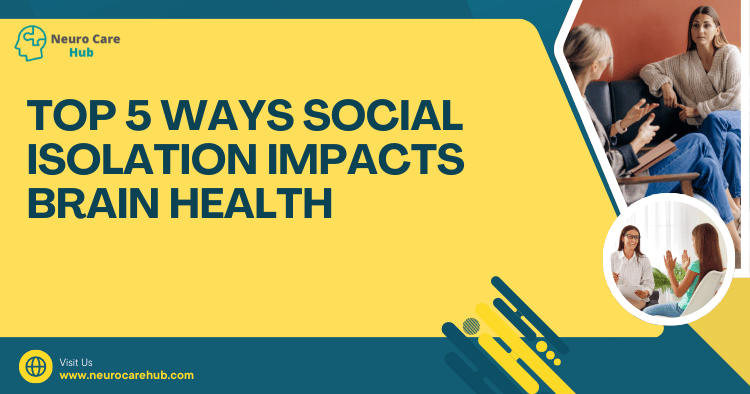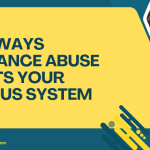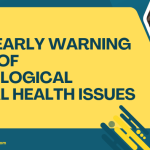Table of Contents
- Introduction
- 1. Cognitive Decline
- 2. Mental Health Issues
- 3. Increased Risk of Dementia
- 4. Poor Sleep Quality
- 5. Impaired Emotional Regulation
- Conclusion
- FAQs
Introduction
In today’s fast-paced world, social connections play a crucial role in our overall well-being. However, many individuals experience social isolation, which can significantly affect brain health. This article explores the top five ways social isolation can impact our cognitive function, emotional stability, and overall brain health.
As we transition into 2024 and 2025, understanding these implications becomes increasingly vital in a world where remote interactions have become the norm.
1. Cognitive Decline
Social isolation can lead to cognitive decline, impairing our ability to think, learn, and remember. Studies show that individuals who lack regular social interaction may experience a faster decline in cognitive abilities compared to those who engage with others regularly.
Why does this happen?
When we interact with others, our brains are engaged in various cognitive processes, such as problem-solving and critical thinking. These activities stimulate neural pathways, keeping our brains agile. Conversely, isolation can lead to decreased stimulation, resulting in stagnation or deterioration of cognitive functions.
Visual Element: Cognitive Engagement Table
| Activity | Cognitive Benefit |
|---|---|
| Socializing | Improves memory and problem-solving skills |
| Playing games | Enhances strategic thinking and planning |
| Learning new skills | Builds new neural connections |
For more information on cognitive decline, visit the Alzheimer’s Association.
2. Mental Health Issues
Social isolation is a breeding ground for mental health issues, including depression, anxiety, and stress. The lack of social support can exacerbate feelings of loneliness, leading to a vicious cycle of emotional distress.
What can we do about it?
Engaging with others, even through virtual means, can help mitigate these effects. Activities such as joining online forums, participating in group chats, or video calls can provide an essential support system.
According to the National Institute of Mental Health, maintaining social connections can significantly improve mental health outcomes.
Also, consider reading about the Top 5 Reasons Neuro Care is Essential in Modern Medicine for insights on how professional support can help manage mental health challenges.
3. Increased Risk of Dementia
Research indicates that prolonged social isolation may increase the risk of developing dementia later in life. A study published in the journal Neurology found that individuals with limited social interactions were more likely to develop dementia compared to those with robust social networks.
Why is this the case?
Social engagement is believed to promote cognitive reserve, which helps the brain resist damage. When we share experiences and ideas, our brains become more adaptable and resilient, reducing the risk of cognitive disorders.
FAQ: Can social activities actually lower dementia risk?
Yes! Engaging in social activities helps build cognitive reserve and can lower the risk of developing dementia. Group activities like book clubs or community services are excellent ways to stay socially active.
For further insights, see the Top 5 Myths About Neuro Care Debunked.
4. Poor Sleep Quality
Social isolation can also lead to poor sleep quality, which is essential for maintaining brain health. Lack of social interactions may contribute to anxiety and stress, making it challenging to relax and achieve restful sleep.
How does sleep affect the brain?
During sleep, the brain consolidates memories and clears out toxins. Poor sleep quality disrupts these processes, leading to cognitive impairments and emotional instability.
Tips for Better Sleep:
- Establish a regular sleep schedule.
- Create a calming bedtime routine.
- Limit screen time before bed.
For further reading on sleep and brain health, check out the Sleep Foundation.
You may also want to explore the Top 5 Ways to Integrate Neuro Care into Your Wellness Routine for holistic approaches to maintaining brain health.
5. Impaired Emotional Regulation
Emotional regulation is crucial for maintaining mental health and well-being. Social isolation can hinder our ability to manage emotions effectively, leading to increased irritability, mood swings, and feelings of hopelessness.
What can help?
Connecting with others provides opportunities to share feelings and gain perspective. Practicing mindfulness and engaging in group activities can also enhance emotional regulation.
FAQ: How can I improve my emotional regulation if I feel isolated?
Consider reaching out to support groups, whether in-person or online, where you can share your experiences and emotions. Engaging in hobbies and exercising can also help improve your emotional state.
For more on managing emotional well-being, the article on Top 5 Ways Family Support Enhances Neuro Recovery may provide useful strategies.
Conclusion
The effects of social isolation on brain health are profound and multifaceted. From cognitive decline to increased risks of mental health issues, the importance of maintaining social connections cannot be overstated. By prioritizing social interactions, even in small ways, we can bolster our brain health and overall well-being.
As we embrace 2024 and 2025, let’s be proactive in fostering connections that support our mental and cognitive health.
FAQs
Q: What are some signs of social isolation?
A: Signs can include withdrawal from social activities, lack of communication with friends and family, and feelings of loneliness.
Q: How can I combat social isolation?
A: Consider joining clubs, volunteering, or utilizing social media to connect with friends and family.
Q: Is social isolation more harmful for certain age groups?
A: Yes, older adults are particularly susceptible to the adverse effects of social isolation, but anyone can experience its negative impacts.
For a deeper understanding of social connections and brain health, you can visit the World Health Organization for valuable resources.
By recognizing the importance of social connections, we can take proactive steps to support our brain health and enrich our lives.






